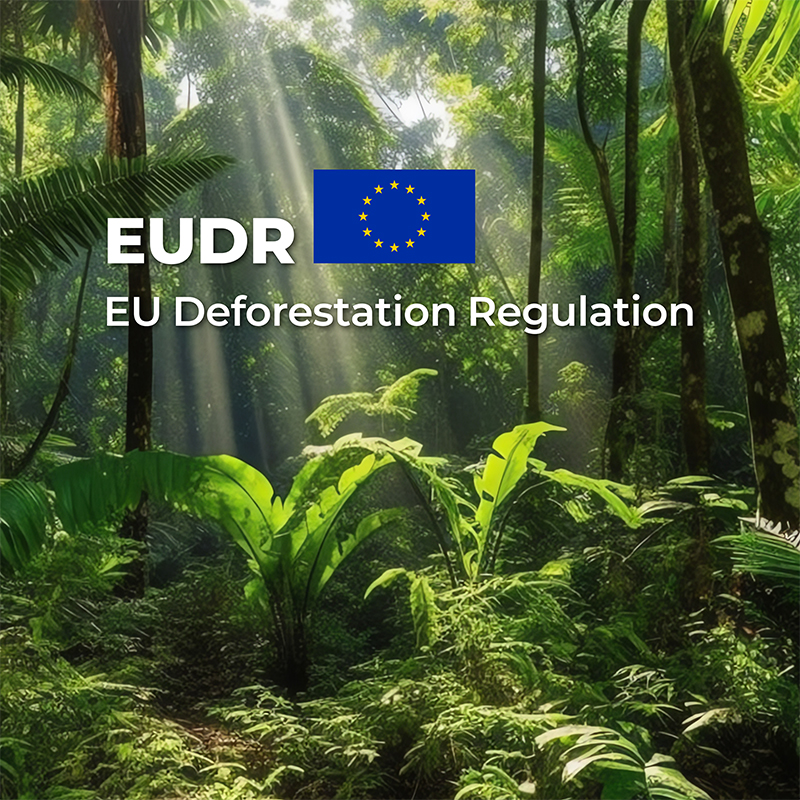CIMB at the Forefront of ESG and Decarbonisation Evolution in the Palm Oil Industry
Luanne Sieh, Group Chief Sustainability Officer at CIMB Group, shares with PalmSphere the bank's approach to navigate evolving regulations such as the European Union Deforestation Regulation (EUDR) and its collaborations to boost decarbonisation efforts in Malaysia's palm oil sector towards Net Zero by 2050.
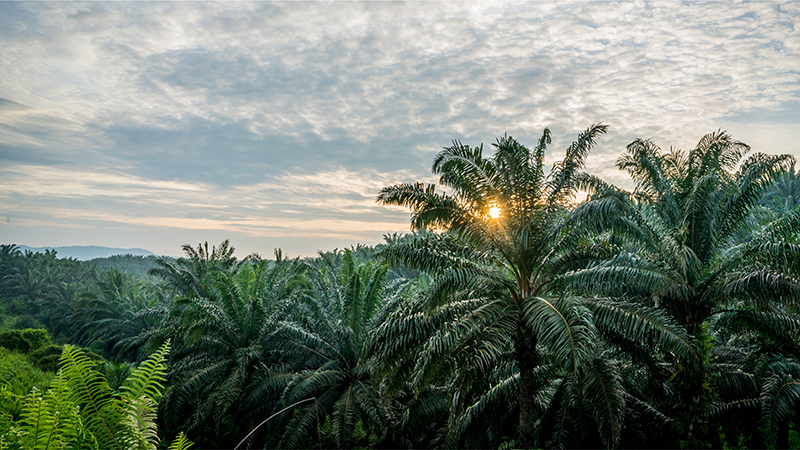
PART 1: SUSTAINABLE PRACTICES AND CERTIFICATIONS
CIMB emphasises the importance of sustainable palm oil production? Could you elaborate on the unique qualities of palm oil that make it indispensable globally and how CIMB view the challenges and opportunities associated with its production, especially in the Malaysian industry?
Palm oil is one of the most widely consumed oils globally. The overall demand for palm oil has tripled in the last 20 years, and its growth is set to continue as population and income growth result in greater demand for food and non-food products.
The prevalence of palm oil rests on several key attributes. Firstly, it boasts a high oil yield per hectare relative to other vegetable oils. It supplies over 32% of the world’s vegetable oil demand on less than 8% of the total acreage of land used in vegetable oil production. This makes it an extremely efficient crop for oil production.
Palm oil production is also responsible for employing over four million people across Malaysia as well as Indonesia, and more than 12 million others indirectly. This includes more than three million smallholder farmers in rural communities who depend on oil palm cultivation to sustain their livelihoods and are responsible for more than 40% of palm oil production in the region.
Despite its ubiquity and the numerous socioeconomic benefits of oil palm cultivation to producer nations such as Malaysia, palm oil has become a deeply controversial product. While the rate of primary forest loss in Malaysia has reduced to near record-low levels in recent years with supportive regulations, claims of deforestation and peatland clearance associated with oil palm cultivation in the last two decades have remained a subject of contention.
In addition, claims on social issues such as land conflicts and workers’ rights have also contributed to the sector’s negative associations, with companies facing increasing scrutiny on their labour practices and human rights protections for workers, indigenous peoples, and local communities.
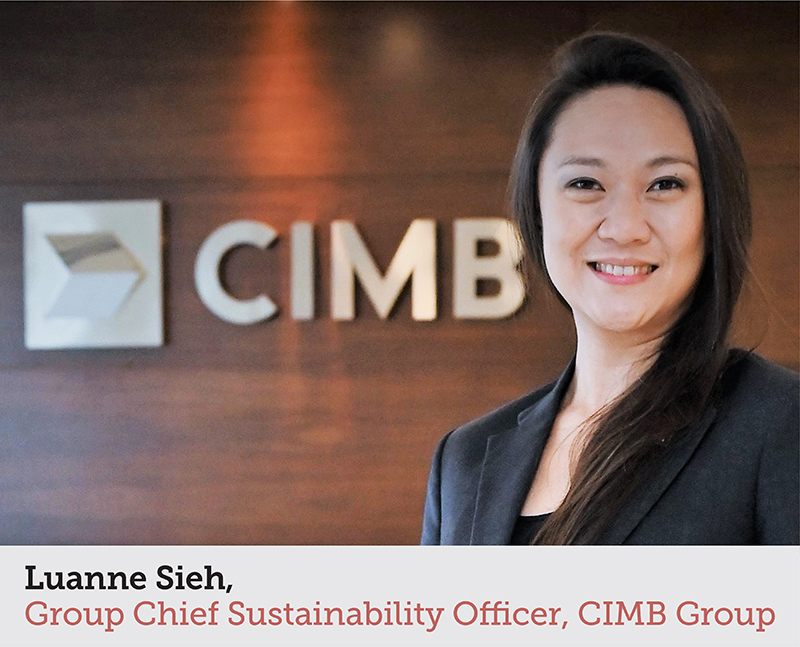
How has CIMB incorporated No Deforestation, No Peat, and No Exploitation (NDPE) commitments into its Group Sustainable Financing Policy, and what specific targets has the bank set for 2030 for the Malaysian palm oil sector?
We incorporated NDPE commitments into our Group Sustainable Financing Policy back in 2022. CIMB requires all clients within the palm oil sector to have an NDPE commitment where a High Conservation Value (HCV) assessment is conducted before any land clearing activities can take place, ensuring all identified HCV areas are preserved, no development is undertaken on peatlands, and Free, Prior, and Informed Consent (FPIC) processes are respected throughout the development of land.
We also require our clients to pursue nationally-led sustainable certifications, such as Malaysian Sustainable Palm Oil (MSPO) and Indonesian Sustainable Palm Oil (ISPO) where available, or Roundtable on Sustainable Palm Oil Standard (RSPO) certification for their palm oil concessions.
As part of our broader efforts to encourage the growth of sustainable palm oil, we became the first bank globally to set an interim Net Zero target for our palm oil portfolio to reduce emissions intensity by 16%, from 1.81 in 2022 to 1.52 tCO2e/tCPO by 2030.
The decarbonisation target is based on the Science-Based Targets Initiative (SBTi) and Forest, Land and Agriculture (FLAG) guidance. These include Scope 1 and 2 emissions from plantation and milling clients, and Scope 3 upstream emissions associated with clients’ sourcing of fresh fruit bunches (FFB) from suppliers.
We have set our targets based on the best possible information available, reflecting the urgency of climate change and the palm oil sector’s contribution to it. Nevertheless, we have incorporated some degree of conservatism in our approach.
In the pursuit of greater accuracy and transparency, we will continue to monitor developments in climate science and advancements in reporting standards, updating our approach accordingly and proactively engaging with clients to support their sustainability reporting and decarbonisation plans.
Considering the socio-economic significance of palm oil, especially for smallholder farmers, how does CIMB plan to balance its sustainability goals while safeguarding the livelihoods of those involved in the palm oil production chain?
CIMB recognises that it is crucial to enable the inclusion of smallholders in the transition, thereby protecting and improving their livelihoods. However, traceability to plantation is a work in progress due to the challenging nature of FFB procurement from large numbers of independent smallholders (i.e., more than three million smallholder farmers in rural communities in the region) and the complex nature of multi-nodal supply chains.
At CIMB, direct engagement with these smallholders occurs primarily through our corporate clients, who procure FFB. For baselining and target-setting purposes, we have also included Scope 3 upstream emissions of integrated palm oil companies, which reflect the growing influence our clients have over the independent mills, traders and smallholders in their supply chain, as well as the role that larger producers can play to ensure smallholders are not excluded from the transition.
In addition to requiring NDPE commitment and sustainability certifications from our corporate palm oil clients as outlined in our Sustainable Finance Framework, we are keen to partner with key players and industry bodies to collaborate on further expanding the adoption of these sustainable practices amongst smallholders within their sphere of influence.

PART 2: COMPLIANCE SUPPORT AND TRANSITION FACILITATION
With a Net Zero approach in the Malaysian palm oil sector, how does CIMB anticipate the impact of the European Union Deforestation Regulation (EUDR) on sustainable practices, and how will the bank support clients in adapting to these regulatory changes?
To support clients in adapting to these regulatory changes, CIMB adopts a supportive and collaborative stance. Recognising the potential financial and resource constraints, particularly for SMEs and smallholders, we aim to provide comprehensive assistance, including financial support and the provision of information and resources through internal expertise or collaborations with stakeholders. This collaborative effort seeks to guide our clients in meeting the compliance standards set by the EUDR, facilitating a smoother transition toward sustainable and traceable palm oil practices in alignment with the Net Zero approach.
The whitepaper mentions collaborating with the broader palm oil ecosystem? How is CIMB extending its engagement efforts to collaborate with regulators, NGOs, and other stakeholders to accelerate decarbonisation in the Malaysian palm oil sector, and what specific collaborative initiatives are in progress?
We consistently utilise our platform to help promote a well-rounded perspective on palm oil, emphasising its advantages and challenges. Our engagements also extend to collaborating with commodity finance and deforestation-focused NGOs to broaden our understanding of the challenges of palm oil and explore potential solutions together.
As guided by our Green, Social, Sustainable Impact Products & Services (GSSIPS) framework, we are also actively seeking opportunities to finance the adoption of sustainable agricultural practices, such as methane capture in palm oil mills to reduce emissions from palm oil mills effluent (POME), as well as installing solar panels to support operations and reduce dependency on diesel generators where access to the grid is limited, among others.
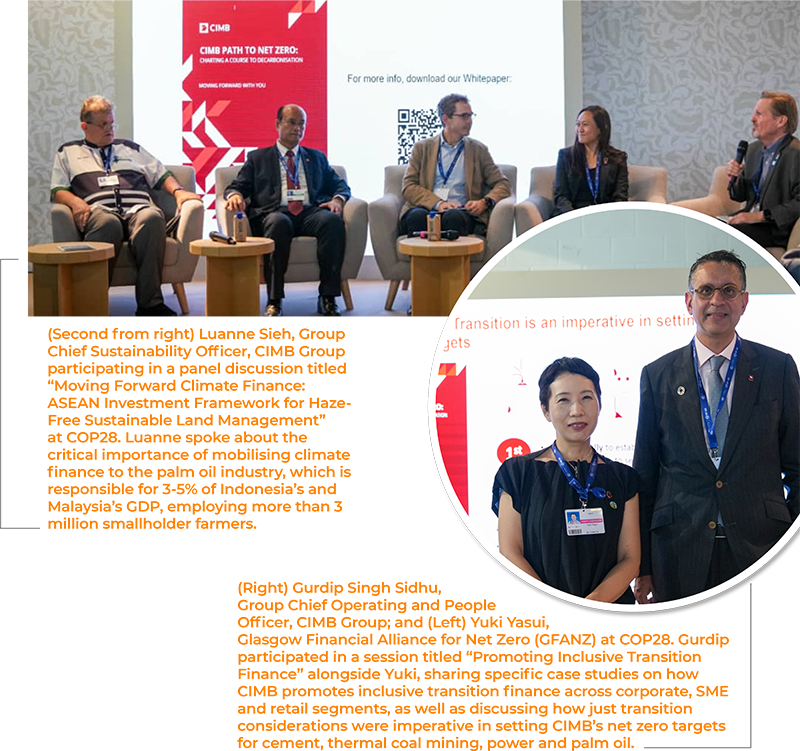
PART 3: INDUSTRY TRANSFORMATION AND TECHNOLOGICAL INTEGRATION
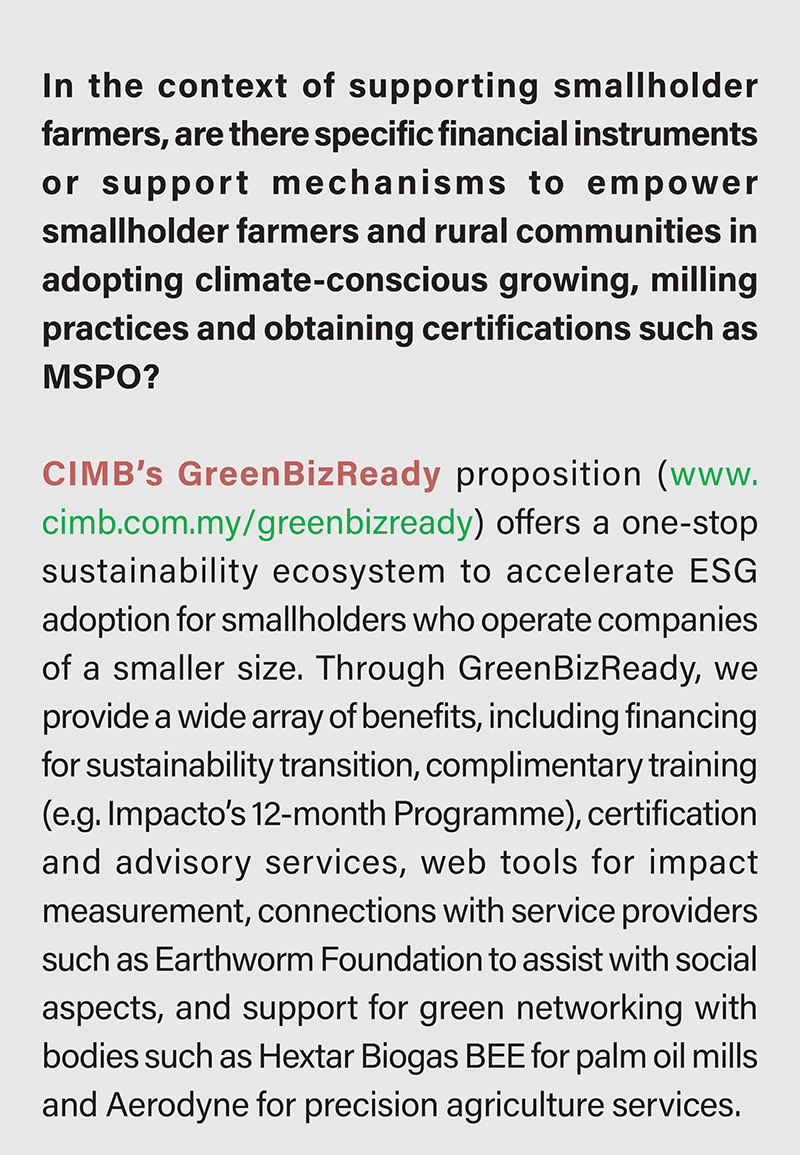
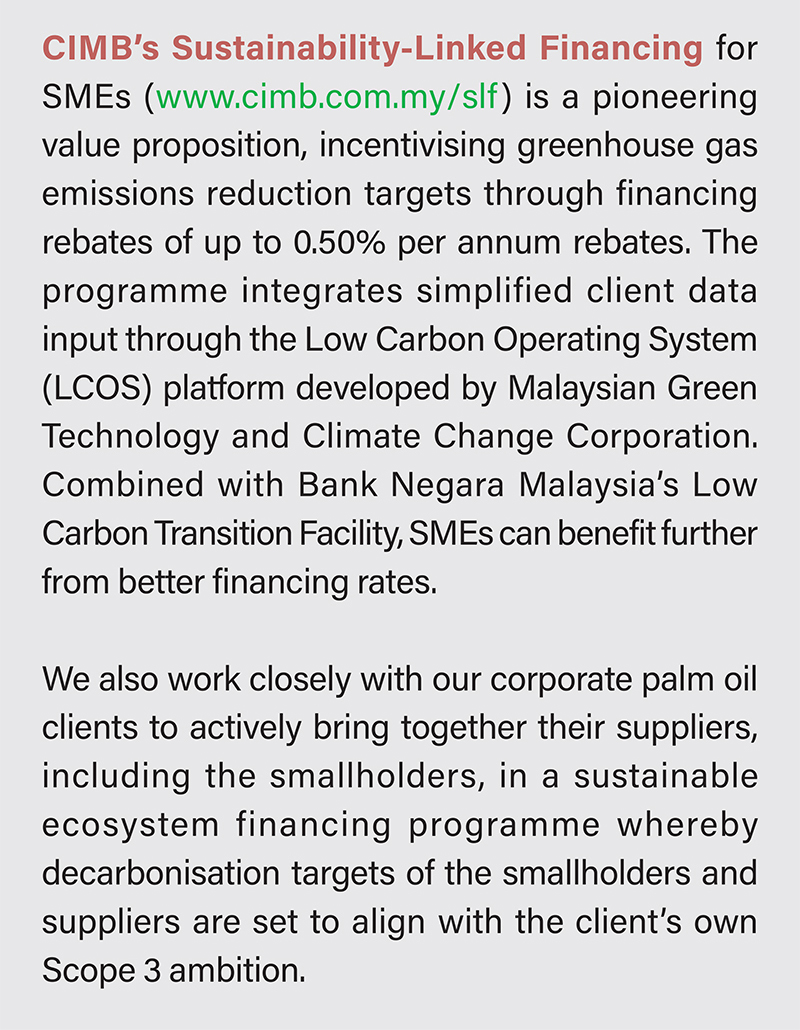
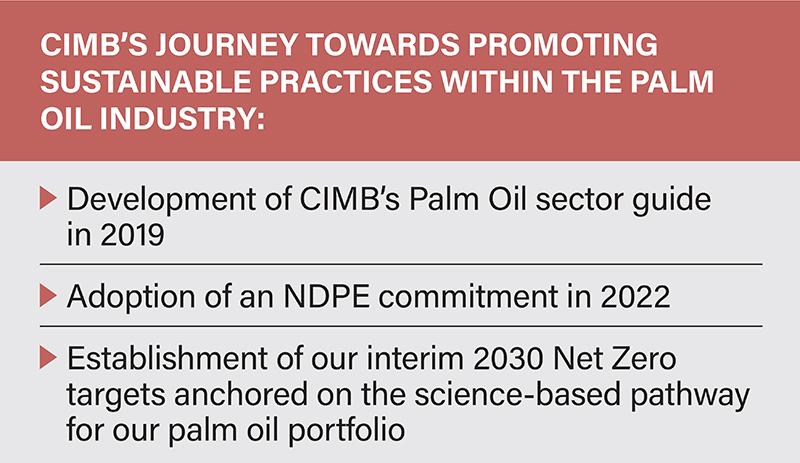
How does CIMB envision future developments in sustainability practices within the Malaysian palm oil industry, and what monitoring mechanisms will be in place to adapt to evolving standards and climate science?
Alongside integrating technological advancements, such as precision agriculture and the Internet of Things (IoT), to optimise resources and minimise environmental impact, we anticipate a significant focus shift towards enhancing traceability and transparency within the industry.
Emissions measurement and reporting are expected to become standard practices, and leveraging digital tools to monitor production adherence to sustainability standards will be pivotal.
Additionally, industry players are expected to embrace green and sustainable finance, seeking funding for applications to improve their sustainability practices further. These may include biogas capture installations, research and development (R&D) on yield improvement, and the upskilling of workers with Good Agricultural Practices (GAP).
This transition is expected to be driven by continuous demand from buyers and civil society, growing public awareness and support levels, and an increasingly supportive regulatory environment. These were demonstrated by recent initiatives instituted by key actors in the palm oil ecosystem, such as MPOB, to develop reporting platforms that support traceability, trade, and deforestation-free certification as well as to navigate the recently implemented EUDR.








